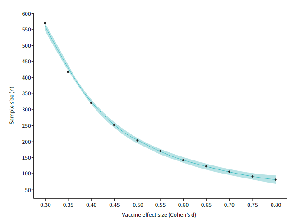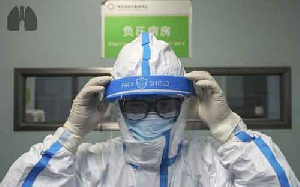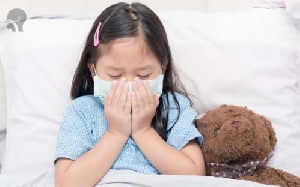
Since the beginning of June, WHO has been supporting the Ministry of Health to host webinars on medical waste management in Indonesia during the COVID-19 pandemic.
The COVID-19 pandemic in Indonesia is continuing to have an impact on the country’s healthcare system and waste management system. There are increased volumes of discarded materials from health protection activities, medical diagnosis, treatment and scientific research. Safe and efficient disposal of this medical waste is a critical component of a comprehensive response effort.
Throughout June and early July, WHO, the Ministry of Environment and Forestry (MoEF) and the Ministry of Health have hosted a series of webinars to share the current policies and national protocols on water, sanitation and hygiene (WASH) and medical waste management in healthcare facilities as well as the safe use of incinerators and autoclaves in the context of COVID-19. More than ten thousand participants from all 34 provinces across Indonesia have participated in the webinar series.
In the webinars, the WHO National Professional Officer for Environmental Health introduced the WASH for Facility Improvement Tools (WASH FIT) for use in facilities that are preparing for, or responding to, COVID-19 cases. WHO recommends the use of WASH FIT to assess WASH in healthcare facilities, make necessary improvements, and sustain quality WASH infrastructure services during this pandemic.
During the webinar series, some challenges in waste management were highlighted by the Ministry of Health and discussed by the participants, including the availability and use of waste treatment amenities in healthcare facilities. While some hospitals have an incinerator to dispose of the medical waste generated, they do not have the necessary license to operate it. Of a total 2 889 hospitals, only 82 hospitals have licensed incinerators on their premises. Hospitals that do not have their own incinerators contract private healthcare waste management providers, 92% of which are located in Java island. The long distance from the hospital to the final medical waste disposal site can increase the risk of illegal dumping, cross contamination and disease transmission due to a heightened chance of accidents or human errors during the extended transport time.
To address this concern and further strengthen the national COVID-19 response, the MoEF released a circular note 2/2020 to allow hospitals to operate unlicensed incinerators during the finalization stage of the permit attainment process. The MoEF also plans to construct a provincial-based healthcare waste management facility – placing incinerators in five locations (Aceh, East Nusa Tenggara, West Nusa Tenggara, South Kalimantan and West Sumatra) this year. This program will be continued until 2024, targeting additional provinces that do not have direct access to a waste management facility.
MoEF also recommended that healthcare facilities, under the oversight of Province and District Health Offices, should coordinate with industries, such as the cement industry, to manage the disposal of their healthcare waste. The WHO handbook on the safe management of waste from healthcare activities, 2nd edition, provides comprehensive guidance on safe, efficient and sustainable methods for handling and disposing of medical waste in both normal and emergency situations.
In addition to the capacity building of provinces through the webinar series, WHO continues the support the Ministry of Health by providing Information, Education and Communication (IEC) materials on waste management and, in collaboration with UNDP, is in the process of procuring four autoclaves and four incinerators to reduce the accumulation of medical waste from COVID-19 healthcare activities.
Ensuring reliable and safe waste management is a must for all provinces to protect public health and contain the spread of the virus in Indonesia.














